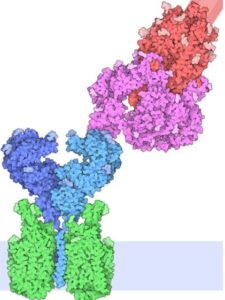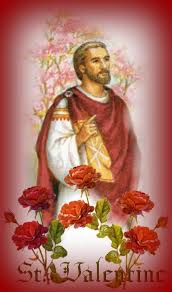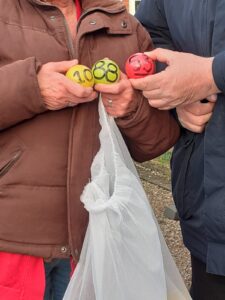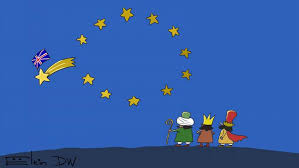
Covid and a Scientist
Many will know that in addition to being an assistant curate in the Severn Valley Benefice, I am also a scientist; I lecture and carry out research in pharmacology at Aston University. For the last 30 or so years, my research has centred around a substance called calcitonin gene-related peptide (CGRP), although in recent years my interests have broadened. Currently I have funding to carry out two projects. One is a novel way of developing antibodies to recognise proteins that are found on the surface of cells; one of these recognises CGRP and is called the CGRP receptor. When it interacts with CGRP, it changes shape and this in turn activates the cell. This relates to the second project, which is using computers to understand how receptors change shape to activate cells. New antibodies will tell us where receptors are found in the body and how this changes in disease; they can also be used as drugs. A better understanding of how receptors change shape will help us design new drugs which bind to them. Modern science is a team effort and both of these projects are being carried out with my long-term collaborator and friend, Professor Mark Wheatley at Coventry University; in addition, the computer project is being driven by another friend and colleague, Dr John Simms, at Aston University.
my research has centred around a substance called calcitonin gene-related peptide (CGRP), although in recent years my interests have broadened. Currently I have funding to carry out two projects. One is a novel way of developing antibodies to recognise proteins that are found on the surface of cells; one of these recognises CGRP and is called the CGRP receptor. When it interacts with CGRP, it changes shape and this in turn activates the cell. This relates to the second project, which is using computers to understand how receptors change shape to activate cells. New antibodies will tell us where receptors are found in the body and how this changes in disease; they can also be used as drugs. A better understanding of how receptors change shape will help us design new drugs which bind to them. Modern science is a team effort and both of these projects are being carried out with my long-term collaborator and friend, Professor Mark Wheatley at Coventry University; in addition, the computer project is being driven by another friend and colleague, Dr John Simms, at Aston University.
Our research is some distance away from producing drugs that can be given to patients; we are interested in the underlying science. There are also no very strong links between CGRP and Covid. As a result, we are not directly doing Covid research; others are much better placed to take the lead on this. However, ultimately our research may feed into therapies to treat Covid.
The Covid virus attaches itself to our cells by means of the “spike protein”, which exists on the outside of the virus. This is a large protein (Fig 1) with several different parts. It is embedded in the outer covering of the virus using a “stalk”, and the “headgroup” of the protein sticks out into the blood of the person who is infected. This headgroup is able to recognise a protein that is found on the surface of cells in our lungs (and a few other places) called ACE2 (Angiotensin converting enzyme 2). This normally makes a substance that helps control blood pressure. Unfortunately, it also sticks tightly to the headgroup of the Covid spike protein. When the two bind, the Covid spike protein changes shape and pulls the virus against the surface of the lung cells allowing the virus to enter and damage these cells.
Vaccines work by getting our immune system to produce antibodies that bind to the headgroup of the spike protein, so stopping it from sticking to ACE2 on lung cells. The technology we are trying to develop for new antibodies may provide new ways of making vaccines. Our work on how proteins change shape may help us understand both how mutations to the spike protein can change its properties and also develop drugs to block it from bringing the virus into contact with the surface of lung cells.
Fig – The ACE2 protein (bottom, green and blue), sitting in the membrane covering lung cells, binds to the Covid spike protein (top, purple and pink) Taken from the Protein Structure Database. [labelled CovSP ACE2]
 This Sunday is February 14th and we all know what that means… Valentine might be the only Christian saint most people could name in this secular age; certainly the only one whose festival they celebrate, albeit without any reference to Valentine himself. The Valentine who we celebrate on the 14th February was probably a Christian priest who was martyred in Rome in the 3rd Century. He is said to have restored the sight of the daughter of the judge who initially was charged with investigating him. He was released but rearrested and eventually beheaded. One version of his story is that just before his execution, he sent a letter to the daughter whose sight he restored; this seems to be the origin of his association with romantic love.
This Sunday is February 14th and we all know what that means… Valentine might be the only Christian saint most people could name in this secular age; certainly the only one whose festival they celebrate, albeit without any reference to Valentine himself. The Valentine who we celebrate on the 14th February was probably a Christian priest who was martyred in Rome in the 3rd Century. He is said to have restored the sight of the daughter of the judge who initially was charged with investigating him. He was released but rearrested and eventually beheaded. One version of his story is that just before his execution, he sent a letter to the daughter whose sight he restored; this seems to be the origin of his association with romantic love.




